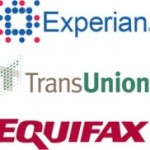 Flips
Flips
- Is the property in stable neighborhood? You might find a prospective purchase that is so cheap it’s too hard to pass up. But maybe it’s so cheap because nobody wants to live in the area. Low prices don’t always mean you’ve found a good deal. It needs to be in an area with current or imminent demand.
- Are your funds ready to go? When you flip, you don’t have time to shop around for financing. The longer you hold onto the property the more it will cost you.
- Get the absolute lowest price you can and compare that with what your agent says it will sell for once in a marketable condition and how many days it will take to sell.
- Walk through the property with your contractor to identify what needs fixing then determine how much it will cost. Order an independent property inspection to look for potential issues you may not notice at your first review.
- Will you have a ready buyer? Don’t wait until the property is completed before looking for buyers. You should have a good idea who will buy the property with names in your database.
Holds
- As with a flip, make sure the property is in an area where rental demand is high, your financing is in place and you’ve inspected the unit thoroughly.
- Determine market rents for the area then compare those with what you can expect to get. You can research basic rental info online but enlist the services of your agent for more detailed research. If you’re still not sure, contact your property appraiser to perform a market rent analysis.
- What are your finance and maintenance costs? Your finance costs include your principal and interest as well as a monthly amount for property taxes and insurance. Don’t discount maintenance costs as well and set aside at least 10 percent of monthly rent for maintenance. Get copies of recent repair and maintenance expenses from the seller. The difference between your gross rental income and holding costs is your monthly cash flow. If it’s a negative number, it’s best to walk. Look the property up on our Investment Calculator for some quick numbers.
- Is the property in good shape? If not, how much will it cost to make necessary repairs? A property with multiple maintenance issues can indicate further problems down the road. A properly cared for unit will have fewer issues in the future.
- Will you manage the property or hire a property manager? If you need a property manager, that will add to your holding costs, reducing cash flow. After all costs are considered and your income exceeds that amount, you’ve likely found your next investment.






Hey, thanks for sharing so much helpful information with us.
An interesting discussion is definitely worth comment.
There’s no doubt that that you ought to publish more on this
subject, it may not be a taboo matter but usually folks don’t discuss
such topics. To the next! Many thanks!!